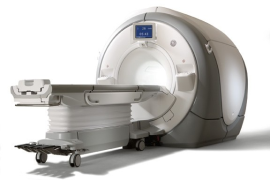The NCITA Exemplar 2 MISSION-Fumarate study is a first-in-human study evaluating the feasibility of a novel hyperpolarised 13C labelled fumarate MRI agent for identification of areas of tumour cell death or necrosis in renal cell carcinoma. Tumour cell death will also be assessed by diffusion weighted MRI and histological examination of tumour tissue removed during surgery. These results will be compared to the hyperpolarised 13C-fumarate MRI imaging scans to assess whether the hyperpolarised MRI technique improves the sensitivity to detection of cell death.
The study, which is registered on the ISRCTN registry (Reference: ISRCTN49119680), has now opened for recruitment. The study is planning to enrol up to 70 patients diagnosed with cancerous tumours or masses from the Cambridge University Hospitals (CUH) NHS Foundation Trust and up to 20 healthy volunteers to develop the hyperpolarised MRI method protocol.
The study is jointly sponsored by the University of Cambridge and Cambridge University Hospitals NHS Foundation Trust (Addenbrooke’s Hospital) and is supported by the NCITA CTU, QA/QC Unit and Repository Units.
For more information, see our NCITA patient resources for the MISSION-FUMARATE Exemplar 2 study and also the recent publication entitled Hyperpolarized Carbon 13 MRI: Clinical Applications and Future Directions in Oncology by Prof Ferdia Gallagher and colleagues in Radiology: Imaging Cancer.


